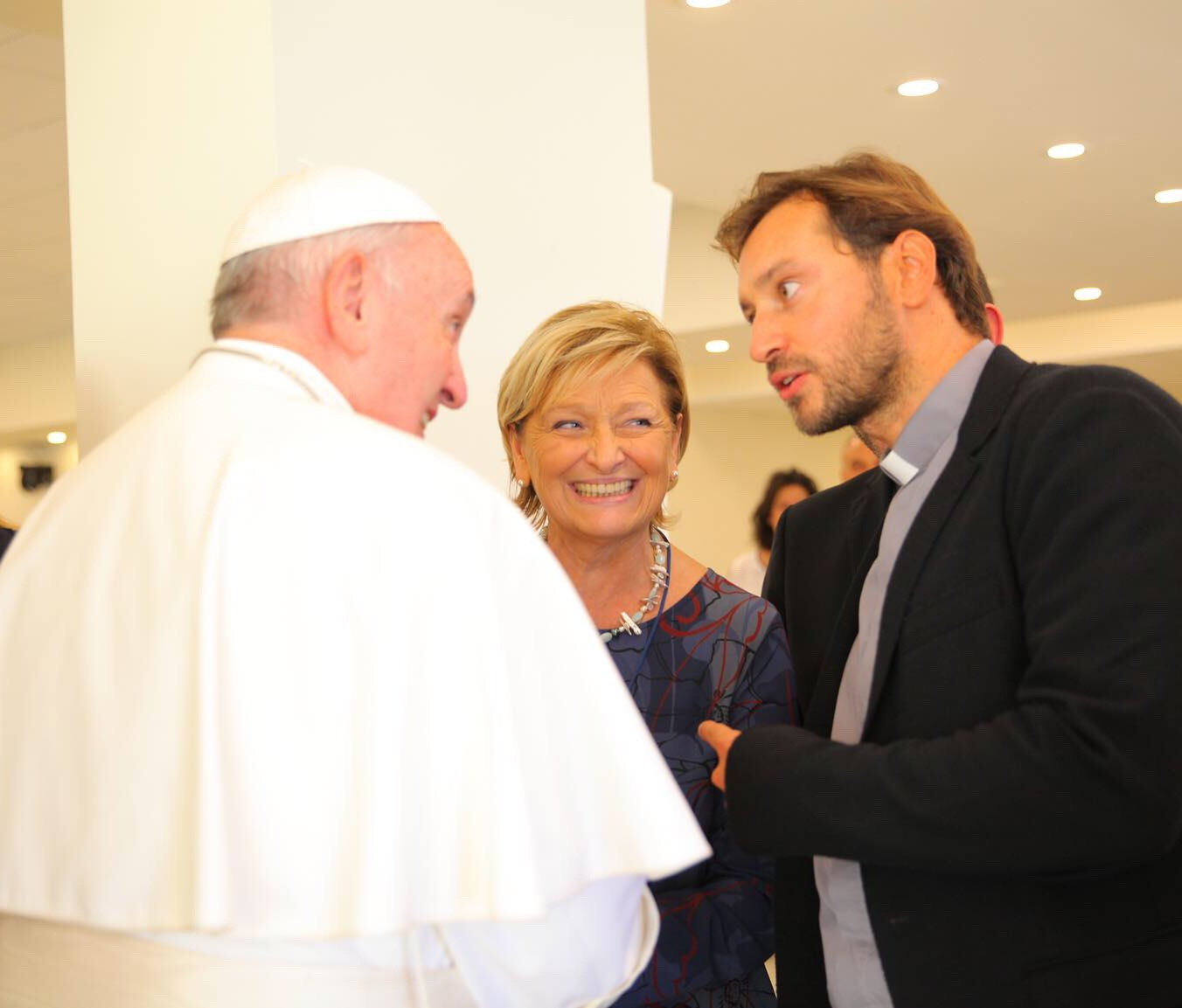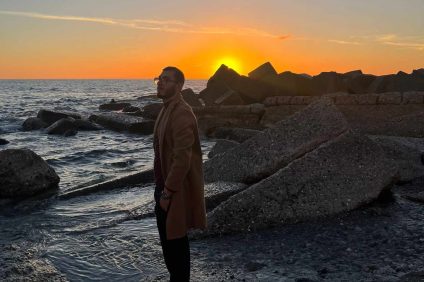“The light is in the luminous being, it radiates the whole cosmos… Life does not end, it is like sleep, birth is like awakening, until we are free we will return again, again and again”. I open our interview with Don Davide Banzato with a verse from Battiato, whom we reached out to talk about his new book “Search your horizon. Get up and go again today. Pope Francis in dialogue with Davide Banzato”Piemme editions. Although Battiato refers in his passage to the migrants of The Ganges and the concept of migration described therein is probably the transition from life to death, I use these words to outline, metaphorically, how we are often led to live and relive the same circumstances that repeat themselves until one finds one's own horizon .
Hi Davide, in your book “Search your horizon. Get up and go again today. Pope Francis in dialogue with Davide Banzato”, ask the Pope ten questions in an impromptu dialogue. Before getting there, prepare the reader with your reflections where the sweetness of inclusion emerges, which leads to a shared dialogue, regardless of the creed personal. At one point you write: "Love asks us to be true and responsible and never to harm the dignity of any person". In which existential dimension is today's love? What is it characterized by and what would it need?
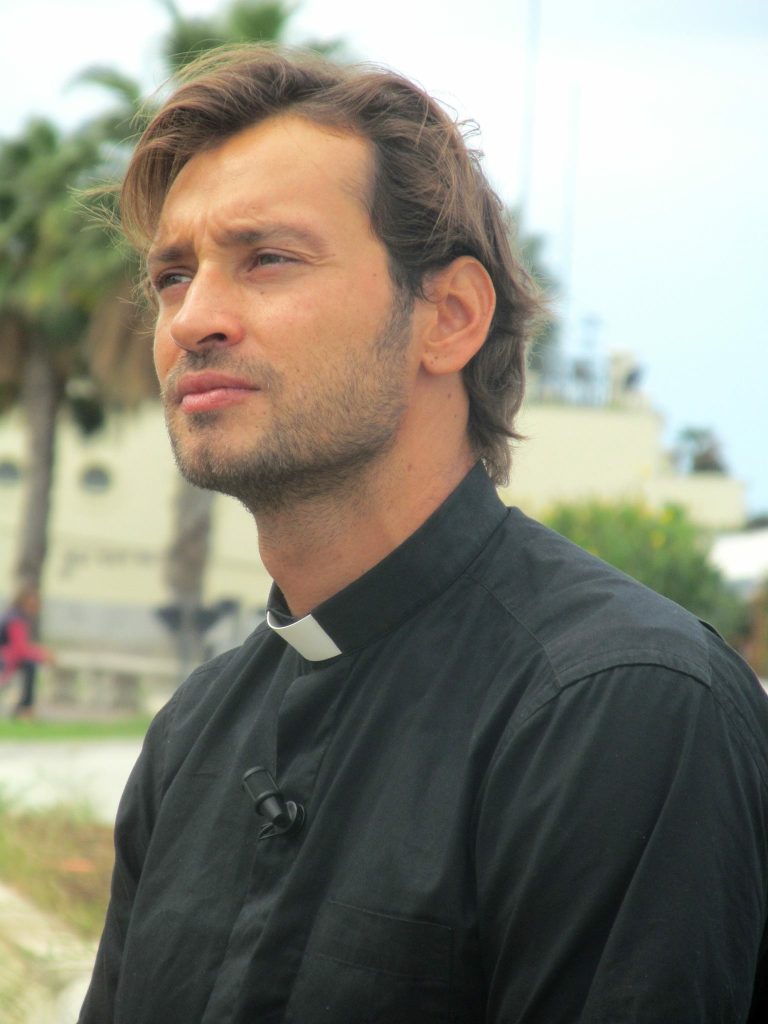
Love and be loved
“I believe that the basic need of every person is to love and be loved. Unfortunately this deep need of the heart is too often betrayed, wounded or filled with palliatives that have nothing to do with true love. Thus further wounds are created or vicious circles of addictions, not necessarily from substances, because they could also be from relational nature. These become real chains that imprison the heart and kill the soul. Each of us seeks happiness, but unintentionally we do it in the wrong places or by putting our trust in people who then leave us with an even bigger void. I believe that balance lies precisely in Jesus' “new commandment”: to love one's neighbor as oneself”.
Spirit therapy, journey of love with Chiara Amirante
“The founder of New Horizons, Clare Amirante, proposes a path of self-knowledge and healing of the heart, called Spirit therapy, which is based on the art of loving inspired by the advice of the Gospel. However it is open to all, for those who believe and for those who do not believe, seeing in any case Jesus an exceptional teacher of life. And just commenting on this commandment in one of the meetings of spirit therapy, followed in person and online by more than 20.000 people from about 80 countries around the world, says that the balance is in thelove your neighbor, starting with those close to us, never sparing in generosity, so that we can experience the greatest joy precisely in the gift of self".
Love starts from oneself, word of Davide Banzato
“At the same time we must learn to love ourselves too. Too many times the Christian message has been misunderstood in a self-defeating way, nullifying itself. When on the other hand, if Jesus says he loves his neighbor as himself, this presupposes that we love ourselves, otherwise we cannot have the strength to truly love others. AND love is always creative, it's always new, it's always a rainbow of colors that never ceases to amaze. Sometimes it requires sacrifice, but just like when you climb a peak, every great joy comes after toiling” – continues Banzato.
What love needs today…
“Today there is a need to go back toessence of the word love, so devalued and emptied of meaning. Loving means respecting the other, thinking about how he feels personally loved. This, because it is not enough for a person to be loved, it is necessary for him to perceive love concretely and in the ways in which his heart feels touched by love. That basic need is at the root of happiness: to love and be loved. If it is not satisfied, one will always go in search of palliatives or one will run into toxic relationships by feeding the selfishness of others, which is the complete opposite of love. Love, respect, freedom and dignity in this sense are words that ask for reciprocity".
Each of us is irreplaceable…
In some television broadcasts you tell of your mission experience in Brazil, a place to which you initially wanted to return. At one point, however, you affirm that "Each of us is irreplaceable wherever we are". What does it mean?
“We only know the categories of space and time that we inhabit in everyday life and in the present moment, the only one we can truly experience. In this sense, where we are right now, each of us is unique and irreplaceable. You don't need to be Mother Teresa and live on a mission in Calcutta to do good. If one is called to a specific vocation like that, surely there is the fullness of our joy and the full realization of our existence there. But wherever we are, whoever we are, we all have the same possibilities and hours of the day and only we can reach those people we meet".
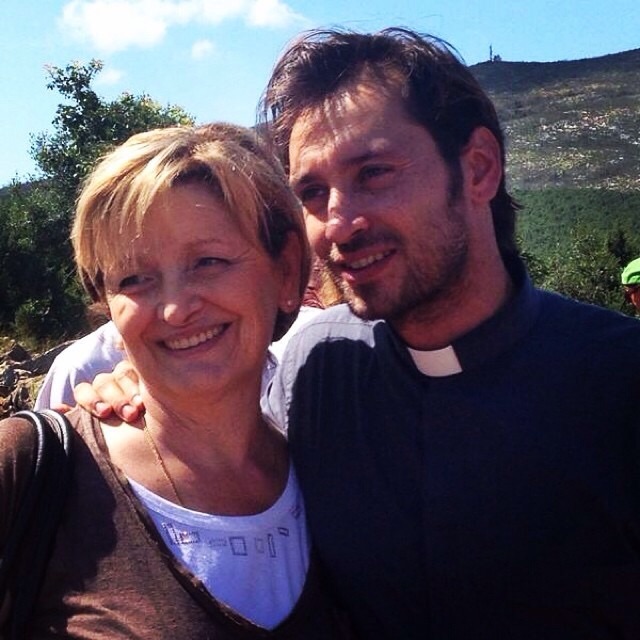
"Therefore, when you are at home, in the condominium where you live, with neighbours, at the supermarket, in places of leisure or work, everywhere we can bring a smile, an act of kindness, asking someone how they are, breaking down the walls of indifference. Trying to help people concretely, without waiting for others to think about it, delegating the responsibility that can make us protagonists in every present moment, giving full meaning to our existence. Chiara Amirante writes in her latest book that the happiest moments we have experienced, if we look back, are those characterized by acts of love. Those in which we have given love or received love. It is no coincidence that the title of the text is “Live for something great. The art of knowing how to decide”.
What does it mean to be "rehabilitated to love"?
“St. Paul says that the wage o fruit of sin is the death of the soul. I have experienced this firsthand. I had every reason to be happy, yet having made choices of not love (which is another way to translate the word sin), I found myself dead inside. Alive but without a meaning in life, without a goal, a purpose and above all unhappy. From here anger was generated against God, against the Church, against people, in short, against everything and everyone. It is easier to blame others than to stop and realize that our personal choices make us accountable of our unhappiness or failure.
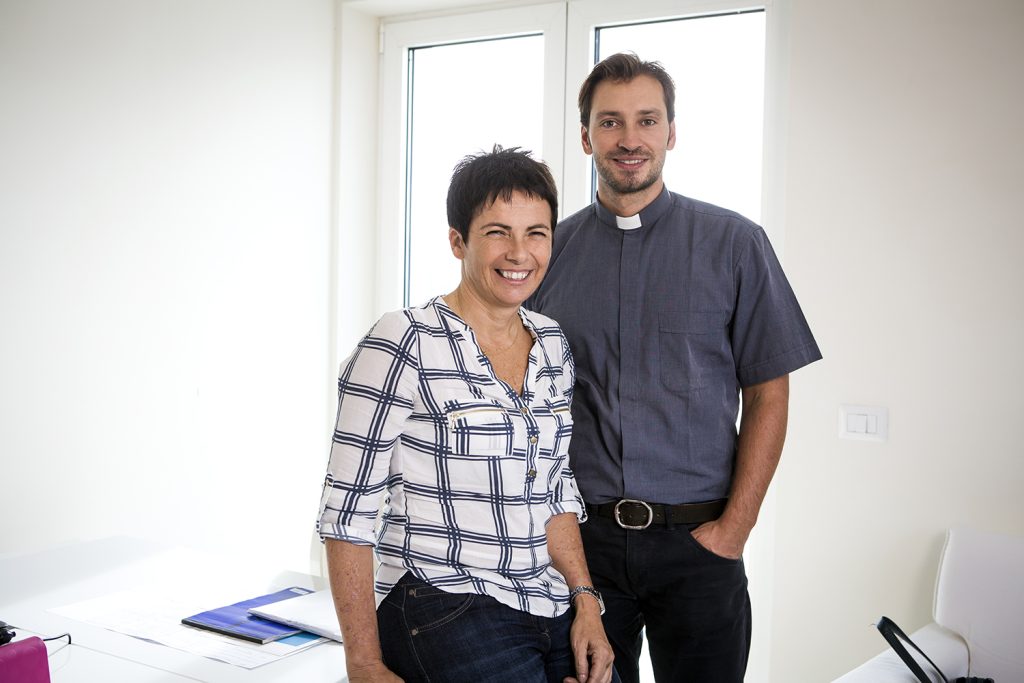
“But precisely where there seems to be a point and it is no longer possible to open the discourse, God is capable to put a comma and so on a semicolon reopen the discussion. It didn't take much. It was enough to ask for help, get help, get on the road and in serious discussion. I had arrived, like so many boys a New Horizons, at such a low point (everyone has his own) that he thinks he can never go back up again".
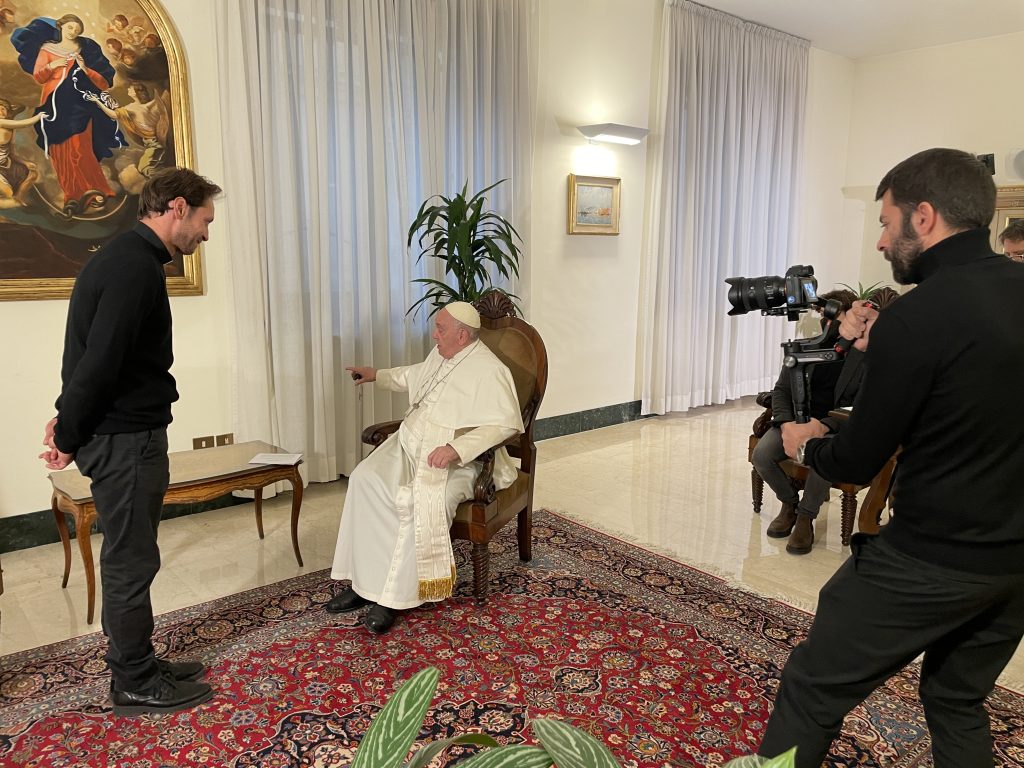
“But it's always there a point accessible to the good in each of us. If you leverage that point, even if it certainly requires effort, commitment, a path, just like a post-operative rehabilitation, you can go back to having a heart that starts beating again. A heart that feels again, go back to loving and feeling loved. This means being rehabilitated to love by the Love that is God, which manifests itself in many ways and often through unexpected "God-incidences".
The dialogue with Pope Francis in the book by Davide Banzato
During your interview with Pope Francis, in your book “Search your horizon. Get up and start again today”, the Pope affirms that in the journey of life “there is the possibility of running into a dangerous disease: clinging to life's failures”. How do you look at unpleasant things with a positive heart gaze?
“We are led to look at the half empty glass. In reality, the most correct gaze is the one that sees both the empty and the full part. Beautiful things help us to remember the gifts received. Starting from life, from the significant people who have given us love, from health and all the beautiful things we have had as a "gift" without deserving it and also from the hard-won goals".
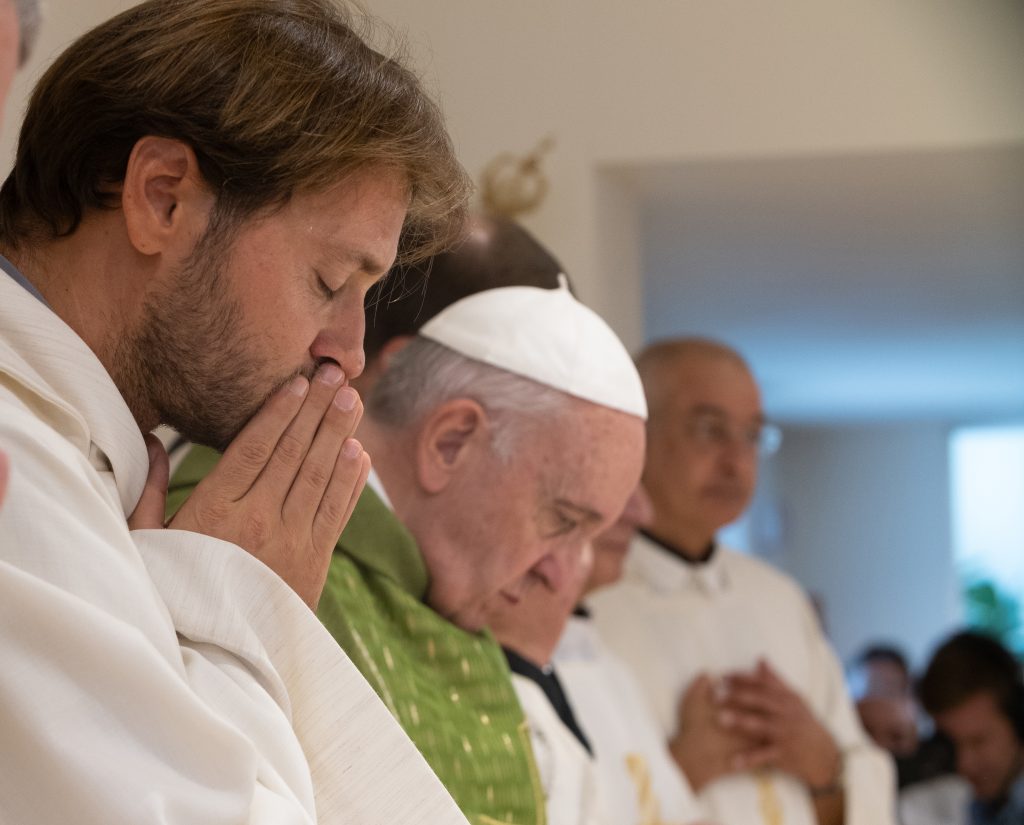
“But the half-empty part is just as important, if you look closely without wearing 'dark' glasses that let us see everything only through a black lens”.
Wounds in wounds of love, from the words of Don Davide Banzato
“Surely certain events that have hurt us will always create pain, but wounds can also turn into love wounds. Thus making us, for other people, instruments of healing, capable of preventing the same wounds or of treating them in those we meet. What hurt us helps us understand what we really want and what we no longer want in our life. As well as our mistakes. It is from them that we can learn and it is thanks to the failures that we can build the future steps that will lead us to authentic success. Not surprisingly, the word success comes from the Latin and means "something that happens after".
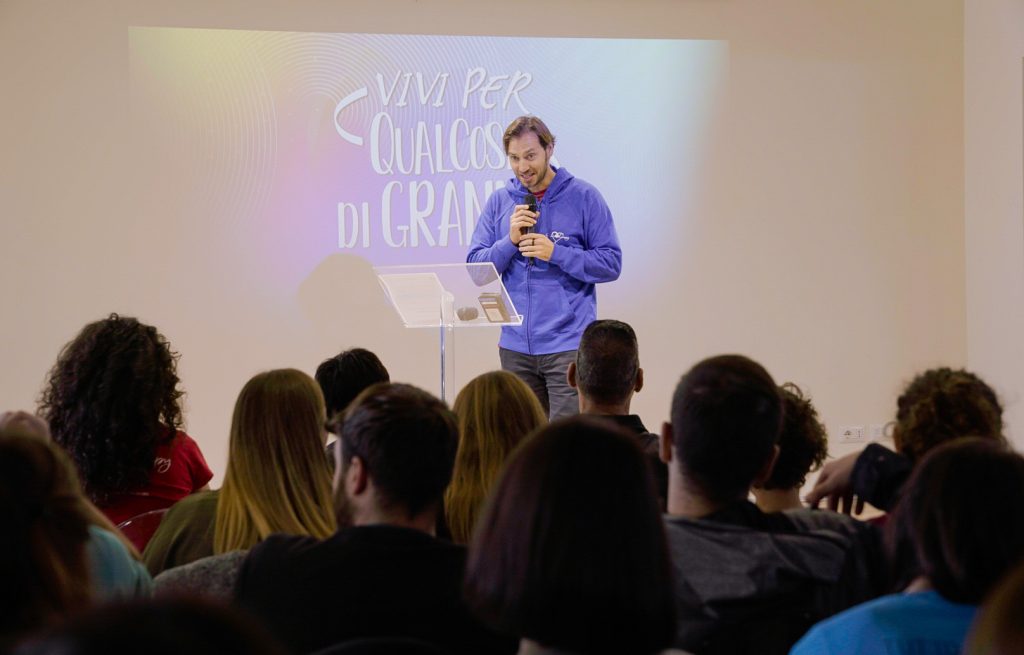
“Every day we can decide to look the way sapiential the events that happened to us and in the book I explain just how this look is an art to learn. In the Bible it is a leitmotiv recurrent for concrete life stories made up of disasters and misadventures, which then allow the protagonists to be decisive in moments of the history of salvation and to make the best choices in the crossroads that are in front. Let's not attach ourselves to failures by turning back on ourselves! Let's learn from our mistakes and from what has hurt us, what we want, and let's build the path to fulfill ourselves by entrusting ourselves to God".
A journey that begins from the eyes of emigrants
Dear Davide, in your book we read that the father of Pope Francis set sail in 1928 from the port of Genoa to seek his fortune in Buenos Aires. You continue narrating news about the Pope's life and write that “He experienced trials, infamies, betrayals and above all humiliations, which he himself defined as a privileged way to grow in humility. He states that "there is no humility without humiliation". I dwell on these last words. Can you explain them to us?
“One of the most beautiful definitions of the word "humility" I heard from Chiara Amirante: looking at oneself in truth. Indeed, Maria, in the Magnificat he says that she will be called blessed and exalt the work of God in his life. Here is the difference between the falsely humble, who hides great pride, and the truly humble person. The latter knows its own littleness, its own finitudeown limits, but also their talents, his own abilities and above all knows how to attribute things correctly, not appropriating the results of others. Great things the Almighty has done in me! From now on all generations will call me blessed! Let us learn true humility from Mary, which – as Pope Francis says – inevitably passes through humiliations”.
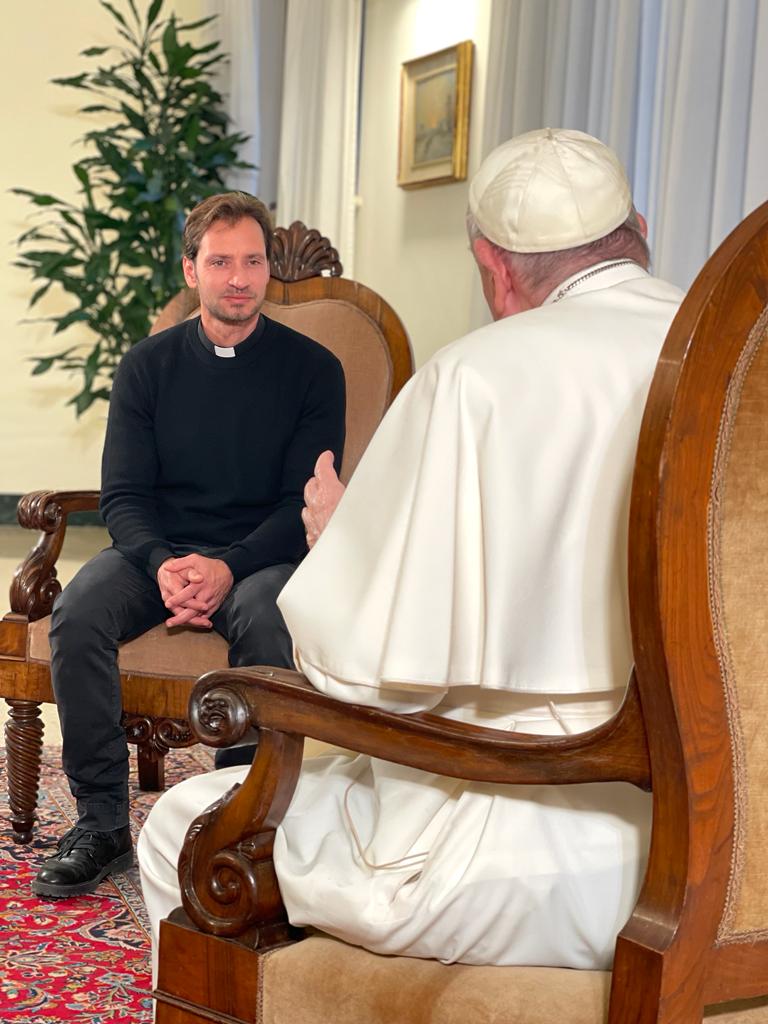
Humiliation as a means to grow
“Mary risks being stoned, her words are not believed, she is humiliated, but what she lives strengthens her in humility. When we are humiliated our pride can grow, arousing in us a "you don't know who I am", or we can go through humiliations as instrumental ways to grow in humility. For example, it was important for me to experience important humiliations, which I tell in a book, largely freeing myself from the dependence on the judgment of others. And coming to be interested only in being serene looking at myself in the mirror, in the thought of those who really love me and know how to tell me things with charity and truth, and clearly before God in my heart".
Faith and trust, two different things explained by Davide Banzato
You write in your book that trust and faith are two different things. The first is derived from the performance of concrete acts that build our credibility and essentially involves the emotional part. The second, however, is given by listening, by believing in words and involves the intellectual part of the believer. Pope Francis, to your question on faith, states among the various things that “There are good people, very good, but who have never had the gift of faith. On the contrary there are those who live by pagan and has “a faith only of paint”. How can these two categories be brought closer to real faith?
“The chapter I dedicate to the difference between faith and trust really wants to distinguish what is a gift, which certainly requires our research and correspondence, but which is always a gift, from trust which instead consists of concrete acts of will. Each of us can do the latter and we do them every day, even without realizing it, in good faith indeed, making right and sometimes wrong choices”.
The words of Pope Francis
“The Pope, to my question about faith, recalls what the Second Vatican Ecumenical Council also says. Namely that who without fault has not had the gift of faith or has another creed, can achieve salvation through their own belief, because there are gods seeds of the Word – I would say like sparks of the One God – in every great religion, but also through one's right conscience”.
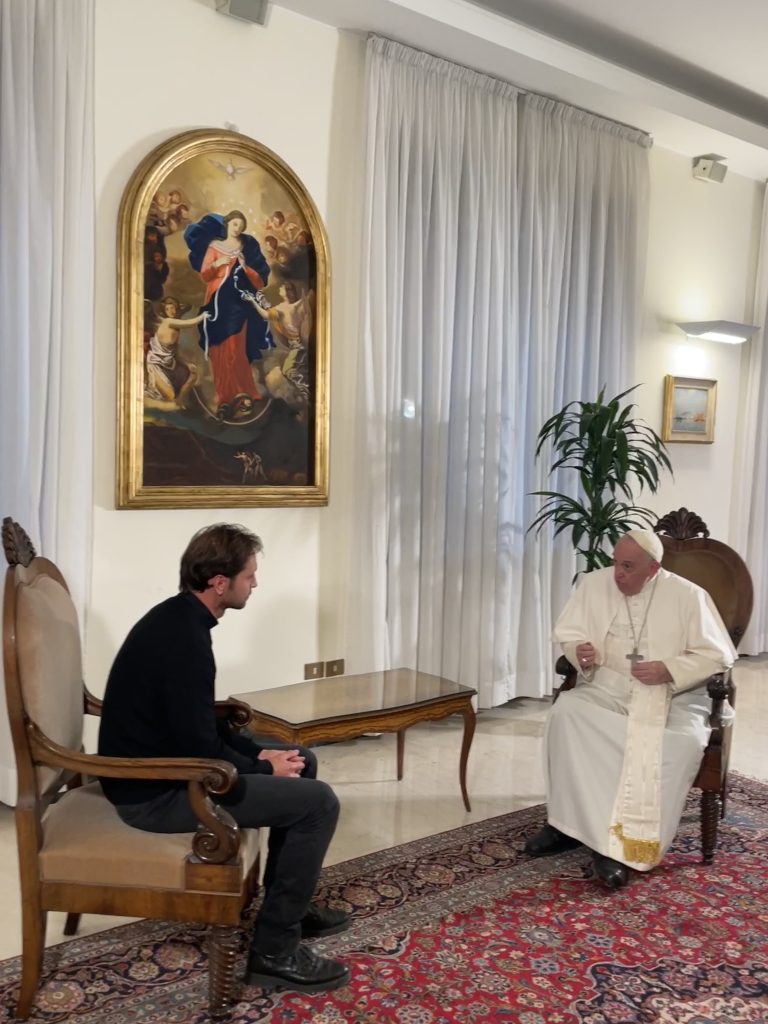
"Conscience is man's sanctuary, the most intimate part, the seat of our decisions, of the deepest self and - for those who believe - the place where God speaks to us and where we can discern what is good and what is bad. Therefore even a person without the gift of faith can train his conscience to be "right." This means continually questioning oneself, confronting those who may be ahead of us on the journey. Then analyzing, as much as possible, things before making decisions, praying and meditating, building authentic discernment before deciding".
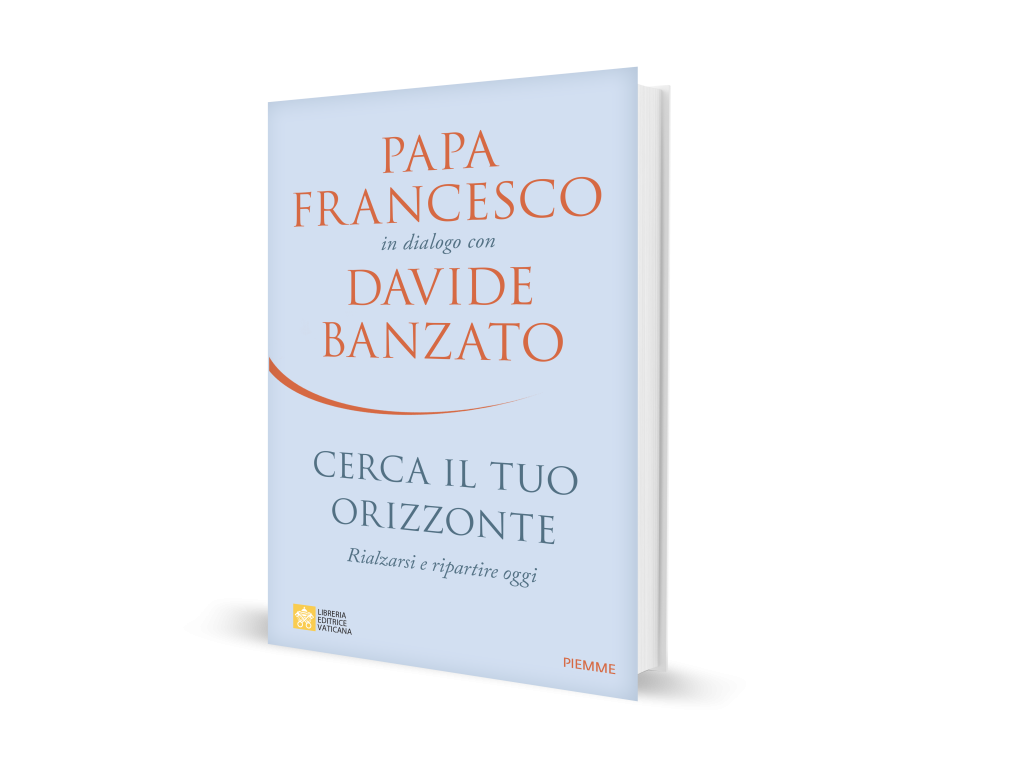
“Deciding always means decide on something and therefore define oneself as a person”, explains Davide Banzato. “Going back to the question: the painted faith belongs to those who say they are Christian and perhaps also experience “religious acts” but external ones. That is, without heart and without impact and coherence with life. A non-believer who lives coherently with an upright conscience can be better and more faithful to the values of the Gospel than someone who considers himself superior only because he believes he is a Christian and goes to Mass on Sundays, but then goes out and experiences nothing or little of the Gospel" .
“Nobody saves themselves…”
Let's come to another current theme dealt with in your book, which is that of the distribution of wealth. In the text we read that “Today either we are all saved or no one is saved. The poverty, degradation, suffering of an area of the Earth are an unspoken breeding ground for problems that will eventually affect the whole planet”, taking up the words of Pope Francis. How do you educate yourself not to turn away?
“I lived mission experiences in extreme areas and I tell something in a book. Today it is evident that we are all part of a single family, we have the same "flesh", as the Pope recalls in his encyclical Fratelli tutti, and we live in a single "house", as he writes in the encyclical Laudato yes'. Suffering today is on the one hand spectacularized and on the other normalized. Therefore a feeling of indifference towards the evil of others has been nourished and the pandemic, instead of opening us up to the world, has made us more frightened and lost. Thus leading us to close ourselves in our securities which are proving increasingly fragile. No one saves themselves."
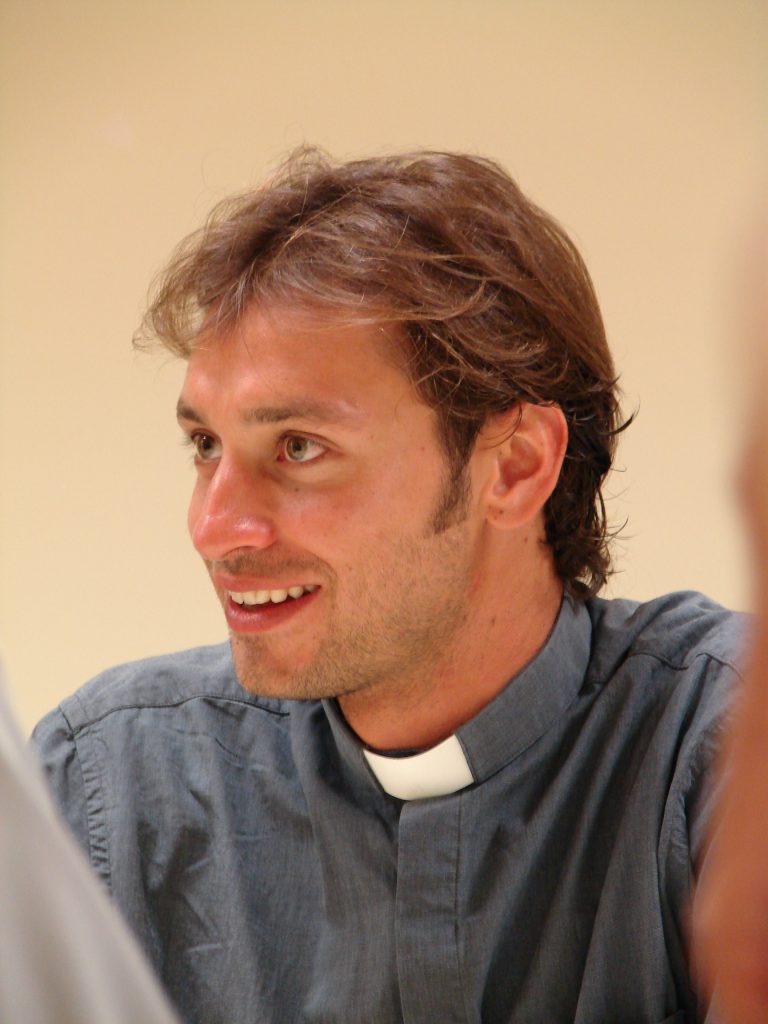
“That's for sure. And if we are a family and live in the same house, where we see that our every action – let's think about pollution – has repercussions that are beyond our control, we must convert the vision of our way of life. Therefore, even not throwing a chewing gum on the ground can be a concrete act initial that initiates change“, continues Davide Banzato. “Everyone has to do their part. There are real structures of evil bigger than us. However, if we think that we cannot change them, then we are already defeated. Behind every structure there are people and we can all personally network and make good personal choices, laying the foundations for good structures”.
A few words on the war with Davide Banzato
Finally, I would like to ask you something about the war. I speak in the singular to refer to all wars. I will start from a text, “War and disillusionment”, first published in Imago in 1915 and written by Sigmund Freud. The author writes that "Without being an apostle of piety and while recognizing the biological necessity of suffering in the economy of human life, one cannot help but condemn war in its ends and means and aspire to the cessation of wars". What can an apostle of piety tell us instead?
“There is no just war. There may be military actions of legitimate defense in the face of an invasion. Just as in the face of an aggressor one can choose to be martyrs or to defend oneself in a proportionate way to the threat in progress. But no war is just. Today more than ever, when biological, chemical and atomic weapons are deployed. Every war destroys. Nothing good has ever come out of a war. What I would like to say, quoting Pope John XXIII, is that peace is not the absence of war, therefore paths of authentic dialogue, listening facts and time to devote to relationships. This applies globally, as well as in the small or large daily wars that we live in interpersonal relationships and that we can dampen with a smile, a deep listening, a forgiveness, a request for apology or a loving embrace”.

